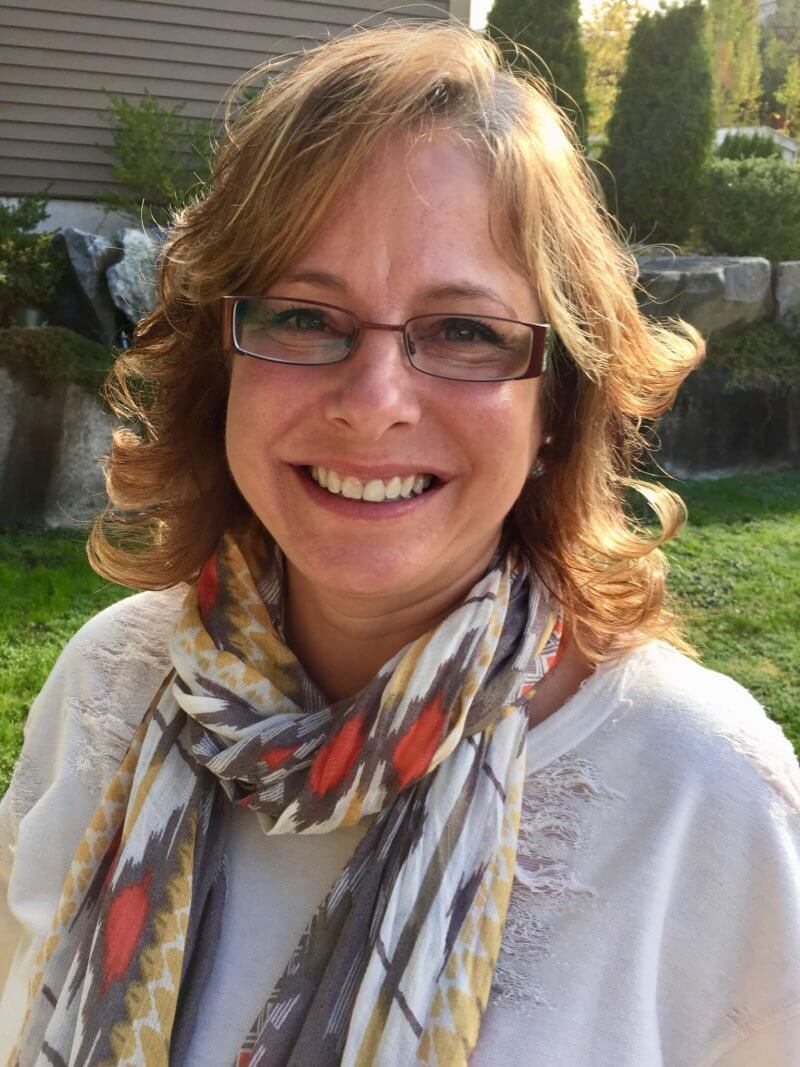Grad student researches legal issues in advance care planning
Cari Borenko Hoffmann is a Canadian leader in advance care planning (ACP). A major grant is supporting her thesis work exploring health-care providers’ understanding of the legal aspects of ACP—to help ensure that in a health crisis, patients, families and providers are all on the same page.
People plan their holidays. They make financial plans. They even make meal plans. But when it comes to their future health and personal care, planning is often haphazard, if it happens at all.
Cari Borenko Hoffmann is passionate about changing that, and works on the forefront of advance care planning in Canada.
The Athabasca University (AU) Master of Health Studies student, and Lead for Advance Care Planning with the Fraser Health Authority in B.C., is the chair and co-founder of the National Advance Care Practice Community of Practice and member of the Advance Care Planning National Task Group.
Canada Graduate Scholarship

Recently, she received a prestigious $17,500 Frederick Banting and Charles Best Canada Graduate Scholarship for thesis research into a vital aspect of ACP: exploring health-care providers’ understanding of the legal requirements and obligations of advance care planning.
The award is presented jointly by Canada’s top-tier granting agencies—Canadian Institutes of Health Research (CIHR), Natural Sciences and Engineering Research Council (NSERC), and the Social Sciences and Humanities Research Council (SSHRC)—to support students who demonstrate a high standard of achievement in undergraduate and early graduate studies.
“The crux of advance care planning is for people to start thinking about and reflecting upon what is important to them before they’re in a health crisis,” Borenko Hoffmann said. “It’s a process that ideally starts when people are young adults and healthy, when they have the luxury of time and can reflect and share life goals and preferences with their family, friends and health-care providers.
“Over time, preferences and life circumstances might change, and advance care planning helps with life’s inevitable transitions. If people wait, however, and if there’s a health crisis, there’s often no time to plan.
“When there are no plans and health-care decisions are made by family members or friends, they may not be the decisions we would make for ourselves. If we are not talking to and understanding our loved ones’ wishes, we are merely guessing.”
Borenko Hoffmann said research shows that while 70–80 per cent of people think about advance care planning, only 50 per cent talk to someone about it, and even fewer, only around 10–30 per cent, speak with their health-care provider.
Crisis situations place burdens on families and professionals alike. It’s no surprise, then, that as many as 30 per cent of Canadians receive medical interventions that don’t necessarily align with their wishes.
“It is difficult for health-care providers to know for sure what to do, because while primary-care providers might know a patient well, a specialist may not. And family members aren’t always on the same page. So there’s constant pressure to navigate conflict,” she said.
Important and groundbreaking work
Borenko Hoffmann’s thesis will be groundbreaking because it will explore health-care providers’ understanding of ACP legal requirements in B.C., and how those obligations contribute to providers’ ability to support patients and families through advance care planning processes.
“There are legal underpinnings and requirements for following patients’ plans, and knowing this would help doctors, nurses, social workers and others act with more confidence,” she said.
“Lawyers may tell people to bring legal papers into the health-care system, but the legal and health-care systems can be two different worlds, and the health-care system might not know what to do with those documents.
“Advance care planning requires health-care providers to understand the legalities, and to have exemplary communication competencies, to ensure consent and incapacity planning tools work as the patient intends.”
With support from the Canada Graduate Scholarship, Borenko Hoffmann hopes to advance this key aspect of knowledge and help grow what is still a relatively small group of specialists, numbering around 100, currently working across Canada.
“We still have a lot of work ahead of us,” she said. “But we are trying to move the conversation forward.”
Learn more about advance care planning and tap into resources—both professional and personal—on the Speak Up website.